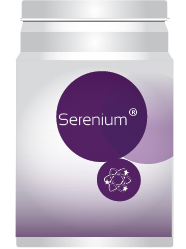STRESS MANAGEMENT


Dysfunction of metabolism in stress
When the situation requirements exceed the possibility of control, a mechanism of hyper reactivity becomes deleterious in the long term by its cardio-vascular, endocrine, and neurological consequences.
The main functional signs of dysfunction are:
Anguish – Anxiety – Sensation of inner tension
Difficulties of concentration – Memory loss
Irritability – Emotional fragility – Instability
Bad capacity to mobilize and to relax
Difficulties to get asleep
Stress outbursts
Neuro-vegetative troubles: palpitations, digestive spams
Hormonal troubles: perturbation of menstrual cycle
Decompensation of auto-immune diseases
Specific aspects of stress
Specific aspects of stress include burnout, stress in aged people, and post-traumatic disturbances.
Burnout
Stress affects more than 60% of employees. Its human and economic cost is considerable, and stress is a major public health problem. More and more people suddenly decompensate their stress without any premonitory sign, leading to “burnout”.
Aged people
Stress is very frequent and under evaluated in aged people. Serotonin production decreases with age, and the threshold of intolerance to stress decreases as well. Stress increases the memory deficit and physiological deficiencies, in particular at the immune level thus leading to infectious complications. Sedative drugs exacerbate the cognitive deficit and increase the risk for falls.
Post-traumatic stress
Apart from wars and natural disasters, post-traumatic stress frequently affects European populations:
Trauma after a road accident, a household accident
Trauma after an attack
Emotional trauma (death of a relative)
ANI stress strategy
The concept of stress symptoms is lived very differently by each one and these symptoms are the source of a large number of consultations.
ANI have developed and conceived an efficient nutritional therapy for reducing the whole set of observed symptoms within a very short time frame.
Mobilization, concentration, rapidity and adapted reactivity depend on a good nutrition of the central nervous system and of the Stress function.
Micronutrition is ideal for maintaining the central nervous system balance and the influx exchange necessary to the management of lived situations: a combination of totally appropriated quietness, concentration, adaptability and instantaneous reaction.
As shown in the 2 clinical studies described below, Stress Micronutrition is a safe, innovative and efficient treatment for mild to severe symptoms of stress.
